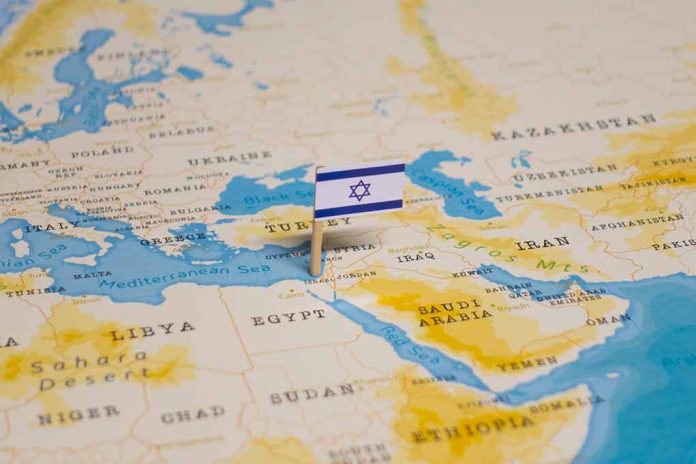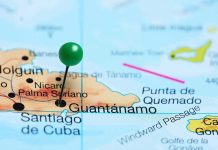
Egypt calls for an emergency Arab summit as Trump’s Gaza proposal sparks regional outrage.
Key Takeaways
- Egypt announces an emergency Arab summit on February 27 to address Trump’s Gaza resettlement plan.
- Trump’s proposal to “own” Gaza has angered key U.S. allies in the Arab world.
- Arab leaders, including Egypt’s el-Sissi and Jordan’s King Abdullah II, reject Trump’s proposal.
- Hamas criticizes Trump’s comments, asserting Gaza is not for sale.
- Tensions rise as efforts continue to extend the Israel-Hamas ceasefire.
Arab Nations Unite Against Trump’s Gaza Plan
In a swift response to former U.S. President Donald Trump’s controversial comments about “owning” Gaza, Egypt has announced an emergency Arab summit scheduled for February 27. The summit aims to address what Egypt’s Foreign Ministry describes as “new and dangerous developments” affecting the Palestinian cause. This move highlights the growing tension between the U.S. and its Arab allies over the future of Gaza and the broader Palestinian issue.
Key U.S. allies in the Arab world, including Egypt, Jordan, and Saudi Arabia, have expressed their displeasure with Trump’s proposal. These nations, historically vital to U.S. interests in the Middle East, find themselves at odds with the president’s vision for Gaza’s future. The summit represents a unified effort by Arab nations to counter what they perceive as a threat to Palestinian sovereignty and regional stability.
Trump’s Vision for Gaza: Ownership and Reconstruction
Trump’s recent statements have reignited debates about the future of Gaza and its inhabitants. In a bold declaration, the President stated, “I’m committed to buying and owning Gaza. As far as us rebuilding it, we may give it to other states in the Middle East to build sections of it. Other people may do it through our auspices. But we’re committed to owning it, taking it, and making sure that Hamas doesn’t move back.”
Trump’s proposal envisions a complete overhaul of Gaza’s governance and infrastructure, suggesting that other Middle Eastern states might assist in rebuilding the war-torn region. However, this plan has met with fierce resistance from Palestinian groups and Arab nations alike, who view it as an infringement on Palestinian rights and sovereignty.
Hamas and Arab Leaders Push Back
Hamas, the militant group controlling Gaza, has vehemently rejected Trump’s proposal. Izzat al-Risheq, a senior Hamas official, responded sharply, stating, “Gaza is not a property that can be bought and sold, and it is an integral part of our occupied Palestinian land.” This sentiment echoes throughout the Arab world, where leaders see Trump’s plan as a threat to the long-standing goal of Palestinian statehood.
Egyptian President Abdel Fattah el-Sissi and Jordanian King Abdullah II have publicly rejected Trump’s proposal, underscoring the unified Arab stance against any plan that might compromise Palestinian territorial integrity. The upcoming summit in Egypt is expected to reaffirm this position and potentially outline a counter-strategy to address Gaza’s future within the framework of Palestinian self-determination.
Egypt convenes emergency Arab summit on February 27 to address Palestine’s concerns over Trump’s Gaza plan, facing strong opposition from Egypt, Jordan.https://t.co/J1WyMpTrjl pic.twitter.com/E3iMujBvvk
— Hindustan Times (@htTweets) February 9, 2025
Ceasefire Complications and Regional Tensions
As Arab nations prepare to convene over Trump’s comments, the situation on the ground in Gaza remains volatile. Recent developments have seen Hamas state that they will delay the release of any more Israeli hostages, accusing Israel of breaching the ceasefire agreement. This has prompted a stern response from Israel’s Defense Minister Israel Katz, who stated, “Hamas’ announcement to stop releasing Israeli hostages is a complete violation of the ceasefire agreement and the deal to release the hostages. I have instructed the IDF to prepare at the highest level of alert for any possible scenario in Gaza and to protect the communities. We will not allow a return to the reality of October 7.”
The fragile ceasefire, which has already seen the exchange of hostages for Palestinian prisoners, now hangs in the balance. As tensions rise, the international community watches closely, hoping for a resolution that can bring lasting peace to the region. The upcoming Arab summit in Egypt may prove crucial in shaping the diplomatic landscape and determining the future of Gaza amidst these complex and evolving circumstances.









